The PVC Tube: an economical didgeridoo | 3€

Sure, it’s not very dreamy… But it’s the ideal solution if you want to try the didgeridoo without breaking the bank. I recommend it to all my beginner students. Remember: a didgeridoo is just a tube! So why not PVC? This one has two big advantages:
- its price, unbeatable at around €3.5 maximum (!)
- and its availability, you’ll find it in any hardware store anywhere in the world.
The ideal dimensions are a diameter of 40/42mm with a length of about 1.10m to 1.20m. This last criterion affects the pitch of the note: the longer the tube, the deeper the sound; the shorter the tube, the higher the sound. If you go beyond these dimensions, you risk having a rather extreme note to start with. You’ll also need to reduce the mouthpiece to 30mm. To do this, you can either use beeswax (see also: 4 steps to make your beeswax mouthpiece), or add a reducer sleeve, which you’ll also find in the PVC tube section (in this case, you may need to sand one end to round the edges so you don’t hurt yourself while playing).
Your didgeridoo is now ready. Easy, right?!
A small tip: prefer high-pressure dark gray PVC. Its thickness will give you a stronger sound than regular PVC.
The plastic didgeridoo: a good compromise | 35€

If you’re not thrilled by the idea of blowing into a PVC tube that looks like a drainpipe, don’t worry, all is not lost! There is another type of plastic didgeridoo that has the advantage of being decorated. Its price is a bit higher (around €35) but still very affordable for starting to learn the didgeridoo. It’s a more motivating instrument because it gives the feeling of having something more crafted for a modest sum, and the sound quality is also much better than PVC. However, there is a slight weakness with this instrument: the plastic mouthpiece is very thin and sensitive to shocks. So be particularly careful when handling it. I recommend two websites:
- Djoliba.com at an unbeatable price, but the design is a bit less refined,
- or at Lugdivine Editions, which offers a more aesthetic model but slightly more expensive.
Djoliba is located in Toulouse, Lugdivine in Lyon. I recommend both shops, run by people passionate about their craft! However, from them, I mainly recommend this type of plastic didgeridoo I just introduced above. For other models, I suggest ordering either from the makers mentioned here or from Didgeridoo-Passion (online or located in Puy-en-Velay), THE reference European (even worldwide!) store for didgeridoos. I can only encourage you to support passionate people rather than large anonymous corporations (I won’t name names ;-)).
The Travel Didgeridoo: the detachable didgeridoo | 75€

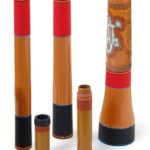
The travel didgeridoo is also made of plastic but has the advantage of being detachable, making it easily transportable. It consists of several sections, which also allows you to change the pitch. It can be a good compromise to test different notes and see which suits you best. The only downside is the fragility of its plastic screw threads. But if you’re careful, you shouldn’t have any problems!
You’ll find it at Didgeridoo-Passion for sale alone here or in a beginner pack with my didgeridoo method (which I obviously recommend! ;-))
The Slide Didgeridoo: several notes in a single instrument | €90

The slide didgeridoo has a unique feature: it can slide. Concretely, this means you can change the pitch of the note simply by adjusting the length of the tube. It’s like having several didgeridoos in one.
For a beginner, this can be interesting if you want to explore different keys without buying multiple instruments. Its price is €90, which is still affordable considering its versatility. The sound is decent and it allows you to practice all the basics of playing. It also has an advantage compared to other plastic didgeridoos: it is made of thick plastic, which provides better stability and therefore a better sound.
A bamboo didgeridoo, the natural choice | 60€

We now turn from plastics towards more natural didgeridoos … So it’s goodbye oil-based materials, hello nature! But be careful, there is another trap. There are two kinds of bamboo didgeridoos: industrial and handmade. The first type is found in most music stores, I do not advise you to buy one of those, because they tend to weaken with time and end up splitting. The second type is made by artisans and is of much better quality. The sound is good and, above all, they are stable didgeridoos that do not crack. Artisanal bamboo is a good way to get one’s hands on a quality didgeridoo made of quality materials for an affordable price (60€). However, this sort of didgeridoo is difficult to find. You will have to knock on the right doors, like David Desfois’, who produces in Brittany (shipping throughout France).
Hexspira: plywood didgeridoos (mind-blowing!) | 350€
Here is now a rather original type of didgeridoo: the hexagonal plywood didgeridoo! Let’s be clear: design-wise, you either love it or you don’t. But this manufacturing process allows Colas Tastu, the creator of these didgeridoos, to offer an almost unbeatable quality/price ratio: the sound is rich, the playability is very good, and the price remains quite affordable. I’m well aware that we’re nearing €400, which is still a significant amount, but keep in mind that you have to compare the Hexspira (the brand name of Colas) with high-end didgeridoos that usually cost around €1000 or more! I recommend a little tour on Colas’ Hexspira website!
The AirDidge: an ultra-light carbon fiber didgeridoo | €375
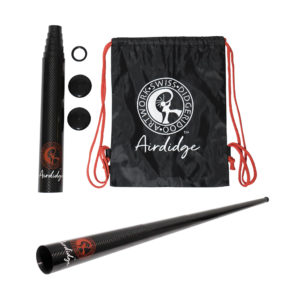
The AirDidge truly lives up to its name: it is extremely light, as it is made of carbon fiber. Like the Travel Didgeridoo, it is composed of several parts, allowing it to be folded and carried anywhere. The concept is very practical since you can completely dismantle it for transport and quickly reassemble it to play.
It is a very lightweight instrument, which is often appreciated as it takes up almost no space. At first, I wasn’t a big fan because I thought there were small air leaks at the joints. But after testing it again, I realized it had simply been poorly tightened — once properly fitted, there are no leaks at all.
Being made of carbon fiber, it should be very resistant, although it’s always best to handle it with care. In terms of sound, it remains a travel didgeridoo: very practical, modular, and transportable, but of course you lose a bit of depth compared to a heavier wooden instrument.
One of its great advantages is its modularity: depending on how you assemble the sections, you can reach different notes. This makes it versatile for practice and exploration. You can find it here in didgeridoo-passion shop.
Tristan O’Meara Budget: eucalyptus didgeridoos hollowed out by termites | €400–675

Tristan O’Meara is a renowned Australian crafter (you can find his didgeridoo on didgeridoo passion) who builds didgeridoos that can cost up to €2000 for his high-end models. But he also offers a **Budget Series**, designed to make his craftsmanship more accessible, with prices ranging from about €400 to €675.
The idea of this series is simple: the finish is less refined than on his top-range instruments, but the sound quality remains good, offering a solid balance between authenticity and price.
These didgeridoos are made from eucalyptus hollowed out by termites.
An agave didgeridoo

Agave americana is a cactus from North America that can today be found on the Mediterranean coast and, in general, on all continents. Each year it produces a flower stalk that can reach 4 meters high! You can imagine that it did not take didgeridoo enthusiasts long to transform this flower stalk into cheerful instruments!
The porous interior can be removed easily and once finished, the remaining tube becomes a very lightweight digeridoo. The light weight provides a very comfortable grip. This type of didgeridoo is more expensive than the others mentioned above, but the level of quality matches the price. It will cost you about 400 €. It is surely a price well above the rest, but agaves open the door to the high-end instruments. Again beware, agave didgeridoos are manufactured all over the world, but not all of them are good!
Here are some places where you can order safely:
- Tyler Spencer (USA)
- Didgeridoo-breath.com (Australia), if they have in stock (?)
Conclusion: love your instrument above all!
As you can see, there are many different kinds of didgeridoos (there are many more! see also: 5 high-end didgeridoo makers to know). However, beyond all these criteria, keep in mind that the essential thing is to have fun while playing. It’s a classic, but one we quickly forget. (see also: How to make sure you lose your passion for the didgeridoo (or music))
I started playing in 2001 on a teak didgeridoo, a gift from my dear parents at Christmas. I loved that instrument. I found its harmonics incredible and couldn’t understand why every Thursday night, when I brought it to the didgeridoo association, absolutely no one played it…
It took me a few months to realize that it was simply bad!
But at the time, it was the best in my eyes, and that was the most important thing. It helped me progress and gave me the passion for the didgeridoo—what more could I ask for?
And you, what do you play on? What type of instrument did you start with? Don’t hesitate to share your experience or ask questions in the comments!


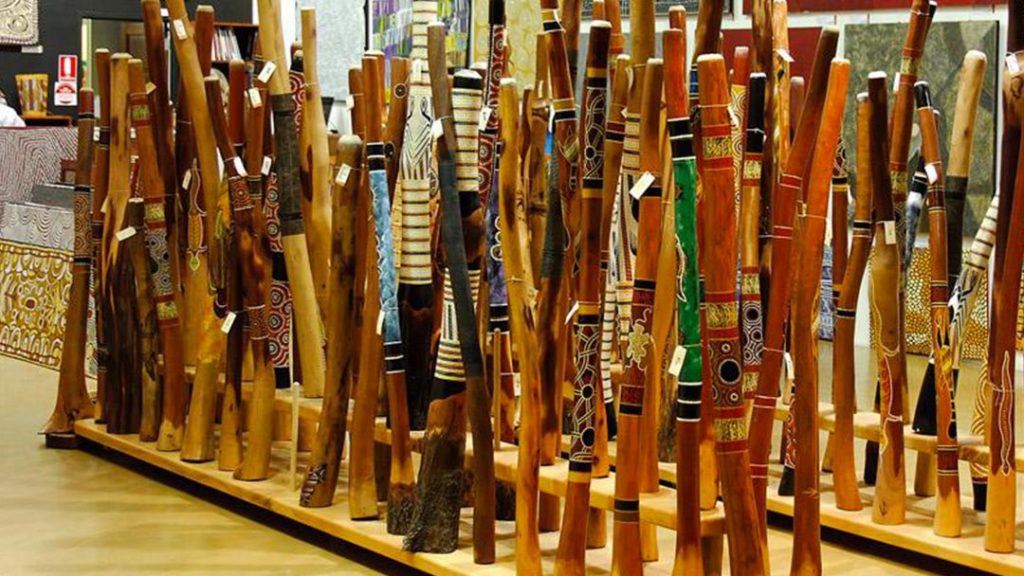
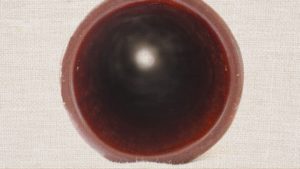


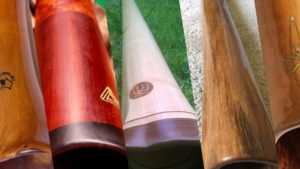
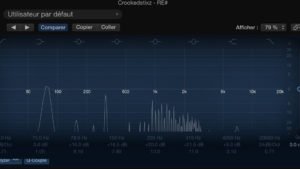


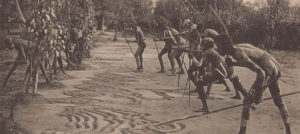


4 Responses
Hey, brother! If you don’t mind me posting this, I sell Agave Didgeridoos in the US as well.
Loving your site. Great resource here.
https://www.mayahueldidgeridoos.com/
Josh
Hi Josh,
Thanks for your feedback about Wakademy!
Yes, good ideate share your work here. I tried to find a pictures of your didgeridoo on your website, but I can’t find anyone.
I think it will be a big value to have some. 🙂
Yes! I know. I just built the site out so it can start getting search engine traction. Photos coming when I have a camera worth its salt. My phone camera doesn’t do it justice.
Thanks, man!
Oh yeah right, good luck with all that!